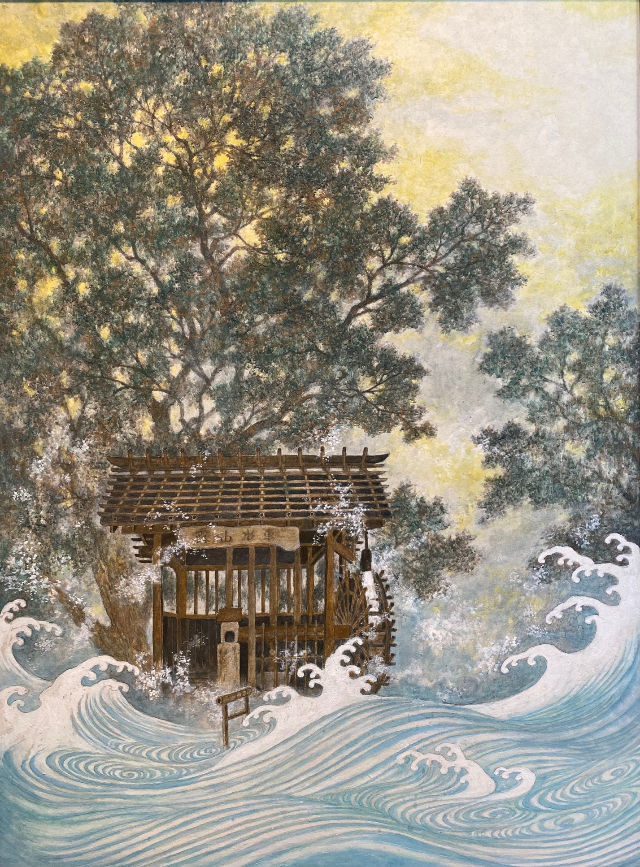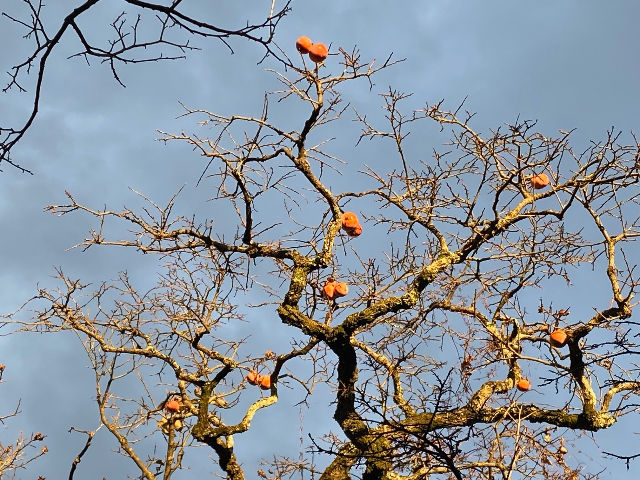TO BEAR OR NOT TO BEAR – A Solstice Meditation
- Rebecca Otowa
- Dec 22, 2022
- 5 min read

How is everyone at the winter solstice? My husband and I no longer “do” Christmas as in past years – without kids, Christmas seems empty. We do send holiday cards, but generally speaking, we are focused more on New Year’s rituals and decorations.
It is hard to “bear” this time of year even if you just do the minimum. In past years I got deeply into Big Cleaning (O-Soji, in which the entire house is cleaned). It’s supposed to be finished on New Year’s Eve and never is, because a house is like a river, it’s always changing and things get dirty again immediately. I even made lists – check off washing curtains in the bedroom, check off washing windows in the bedroom, etc. Now I don’t bother with such hard work in sub-zero weather. My bed is very hard to leave on these mornings, with warm cats snoozing inside the covers and freezing temperatures even inside the house before the space heaters get turned on.
I recently learned a new word in Japanese which explained a lot to me. It is isagi-yosa
(described by Yoshiaki Yagi** as “to make decisive action and forget without reservation” and by my Japanese husband as “willingness to act with pure heart, without expecting rewards or consequences”). It seems to be tied deeply into such Japanese cultural manifestations as mono no aware (the pity of ephemerality), shikata ga nai (It can’t be helped, there’s nothing for it), and seken no me (the Eye of the World, referring to the judgmental view of neighbors etc.) and to group culture in general (as opposed to individual-based culture as we find in the West).
With experience both in Occidental and Oriental traditions of spirituality, it is clear to me that the latter provides a much more passive worldview than the former. Buddhism, with Zen and Tibetan meditation based on the breath, and allowing “thoughts” to drift away into nothingness, is much more passive in feeling than the meditative practices, for example, of the Western magical tradition, which are more active and have focus (on geometric shapes, etc.) and visualization as their base. One is not focused and extols the virtues of living in the present moment, since “everything we experience is the path”, and doesn’t really recognize an ending; the other has a definite goal, and a hierarchical ladder to this goal, in mind.
These two types of spirituality give rise to (or arise simultaneously with) the atmosphere of group or individual cultures, of letting go or of trying to change things with one’s own strength. This is very interesting to me, and this new word isagi-yosa crystallized for me a lot of things I didn’t notice or agree with in the culture than surrounds me.
Which is more aligned with our experience of being human? To let things go and accept everything that comes our way, or to fight against “reality”, including what we see as injustice and wrong? These two are polar opposites of experience, and whole cultures have been built upon them. They are certainly part of my own bicultural marriage. When I rant and rave against what I perceive as an injustice, my husband listens, but never gives his own opinion. Maybe he doesn’t have one, and his attitude reflects the cultural passive acceptance…? For him (probably), my ranting and raving are pointless and a waste of energy. I often say to him “Don’t you think X is wrong?” and he answers, when pressed, “Yes, but we can’t do anything about it.”
In another context, it’s the difference between the two proverbs “The squeaky wheel gets the grease” (Western) and “The stake that sticks up above the others gets pounded down” (Japanese). We Westerners are so sure that if we squeak enough, we will get what we want. The Japanese are much more interested in fitting in with others, with being the same height as the rest of the stakes. This is where the idea of seken no me has so much power psychically. If one is afraid of being judged by the group, one will not do anything to “rock the boat”. It also gives us carte blanche to judge others when our turn comes. A Westerner like me sees seken no me as slightly ridiculous, since the individuals who are doing the judging are just the same as the people being judged. They aren’t gods; they are other human beings, our neighbors, and there is really nothing to be afraid of from them. Yet in Japanese group culture, to be looked at askance and judged by one’s neighbors, or worse, to be ostracized, is the one thing that they will do anything to avoid. Nakama-hazure (ostracization) used to be a punishment for children – they were simply thrust outside and the door locked on them. They could not join in the life of the family as long as the punishment lasted. This was not the same as the modern “time out” given to small children, which is, ideally, a chance for them to calm down and reflect on their own wrongdoing (as individuals); it was simply a way of instilling fear in children of the threat of being outside the group. They would do anything in order to be accepted again, because being accepted is the highest good.
This ties in with another Japanese cultural phenomenon, that of tatemae (the self, the mask shown to others) and honne (the “true feelings”, usually negative, of the self in private). One may be the soul of kindness, politeness, and generosity in tatemae mode, indeed this is expected; when one is safe inside one’s own house, though, the honne comes out and one can express one’s true feelings about the situation to those closest to one. Thus the group is safeguarded from negative feelings which they would have to judge the person for.
In both types of culture, there is ample room for abuse of the system, usually by people who don’t care particularly about the social rules anyway. These are the people, in Japan, who hide behind ideas like shikata ga nai (It can’t be helped) and isagi yosa (in this case, a feeling of fatalism) to do injustices to their fellows, relying on the fellows’ fear of “sticking out” if they protest, which is very real. In the West, the cult of the individual excuses everything, such as social ills in the name of free enterprise, etc. People demand respect for what they are individually, with (in many cases) no care for the group they belong to and, worse, no consciousness of belonging to any group.
I am wondering if there is any middle of the road. Both are deeply instilled in the human psyche, and they are indeed opposites. The rewards and punishments of each, in society, are all-encompassing to those within that society. It’s not really a question of which is “better”; in the end, I guess it’s just a question of what we, personally, can bear. This is an example of what goes through the mind of a person who has been raised in one culture and finds herself making her life in a completely different one.
A fitting subject for end-of-the-year meditation.
** Yoshiaki Yagi is the author of Japan and Things Japanese: An Invitation to Japanese Culture (2022) in Japanese and English; the English is edited by my friend Jann Williams.



I need to read this a few more times. I now understand what it means when a reviewer writes that an author's work is "nuanced".
I enjoyed reading this so much!
Rebecca. I can completely relate to your powerful writing. Human beings need others in many ways to have a meaningful life and live in harmony.